Our Director of People & Culture, Anne Clarke, had the pleasure of asking some of the women at Kilburn & Strode about their experiences with bias, feeling empowered and doing your part in achieving equality for women and other underrepresented groups of people in the workplace.
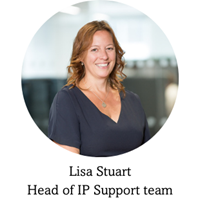
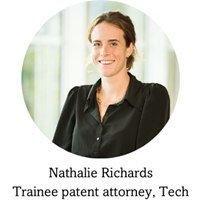
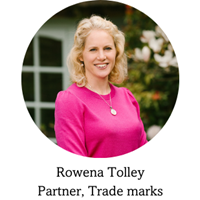
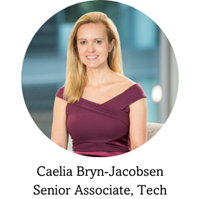
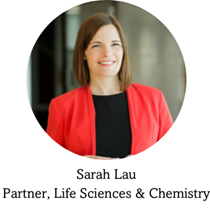
Anne Clarke
So many times in my career I have been told ‘We need to do something about diversity’ and so many times in those same organisations, I have experienced situations where presenteeism has carried more sway than being good at what you do.
Being present is just one example. Businesses, bosses, colleagues unconsciously creating situations that cause, at worst exclusion, and at best that working mum guilt to go into overdrive because once again you are last at nursery pickup.
Maybe this pandemic has started to challenge that mindset, has taught us to measure the what and how rather than the where, after all none of this is exclusively about being a working mum.
‘Doing something about diversity’, is a long-term commitment. If we really want to tackle bias then we need to understand our own both conscious and unconscious. We need to be able to challenge ourselves and have the confidence to challenge others. We all need to start thinking of ourselves as role models, and the influence we have for positive change.
What can we all do to actively break the bias women and other minority groups experience in the work place?
Rowena: We have to learn to think outside our own immediate bubble. That’s hard, as each of us has only ever seen life through our own eyes. But being aware of the need and making a conscious effort to put yourself in someone else’s shoes can have a huge impact on how we all think, speak and act. That and having the courage to speak up and call out bias when you see it – “even” if it’s only so-called “low level”. A thousand little cuts can be just as damaging (if not more so) to both an individual and a workplace as a single large wound.
Lisa: To actively break the bias women and other minority groups experience in the work place, we must ensure there is equality, we must support women returning from maternity leave and encourage them to climb the ladder, even if they are part-time. Equal pay regardless of gender.
Caelia: Call it out constructively. Fear breeds bias: listening to concerns, educating, and being your best role model can help lay the ground work to banishing bias from the workplace. Actively look to mentor and support minority groups in all areas, whether it's in recruitment, team building, or promotion...EDI needs to be on every agenda, and part of every decision we make.
Nathalie: There has been a big cultural shift in the last few years with the way gender is talked about and recognised. Until this point, in their education, work and lives, women have experienced a very different set of circumstances to those of men. Now, younger people entering the workplace are increasingly likely not to have had gender-related character traits placed upon them whilst going through the education system. As a result, they are less likely to make assumptions about people based on their gender. This is a positive change, but one that will mean that the way in which biases are broken will also have to change. Up until this point, many of my successful female friends have been forced to develop quite polarising gender characteristics in the workplace. In order to succeed as women, I have seen my friends and colleagues often find themselves having to excel in "typically feminine characteristics" alongside their roles, almost as an 'M.O'. Conversely, I have also had friends polarise themselves in the opposite direction of the workplace - cultivating extreme masculine qualities to 'play the game'. In a world where we are taught to expect different things from different genders, this is necessary. Doubtlessly people of different genders will continue to have different experiences, but I think the next step is to try not to project these different experiences into polarising assumptions about characteristics. This may seem particularly counter-intuitive to women in the workplace. Many of my female colleagues and friends entered male-dominated workplaces knowing that women have a point to prove and have taught me the importance of proving that "we can do this as well as men, or even better". Without these women, this discussion wouldn’t be possible. If we start to assume the same gender-based qualities from people, the requirement to conform to/oppose a stereotypical gender role will hopefully decrease. Actively breaking this bias has to start with the way we communicate and the language we use. We should also make an effort to notice if what we are asking of people and how we are reacting to them is based on assumptions about their gender. Hopefully, in this way, we can break the bias by celebrating masculinity and femininity in everyone whilst recognising the difference in people’s experiences.
Sarah:
We need to have the confidence to call out bias when we see it. This can be really difficult, but having the right tools and the support of colleagues can help. We should also make a conscious effort to educate ourselves and listen carefully when people from underrepresented groups are talking. We recently ran D&I training sessions for everyone in the firm. I found these really illuminating (for example in relation to microaggressions) and they gave us some great tools for dealing with incidents if they occur. Also, a fantastic colleague wrote some moving and thought-provoking pieces for Black History Month which I learnt a lot from.
What has helped you in your career, and how do you try to help others following in your footsteps?
Caelia: Being a single parent and having sole parental responsibility for children is not easy! But recognising and using in the workplace the broader skills learnt from this complex multitasking challenge has been hugely rewarding. To mothers and carers alike: don’t be afraid to ask for flexibility, and use those superpowers!
Nathalie: I’ve found it easier being a woman in this industry having women in positions above me, in the same way, having open LGBTQ+ colleagues in my firm that have reached senior positions has also helped me. I think being able to recognise yourself in people that are successful in your industry is important.
Rowena: The biggest lesson I’ve learned is that you’re enough, just as you are. But you need to know who that person is. Don’t try to be or copy someone else – it’s exhausting and debilitating and there’s really no need. Just be yourself and have confidence in that person. It’s taken me a while to get to that point but it’s incredibly liberating when you do. Trying to build up the confidence of those you work with is likewise so important. It’s so easy to criticise or forget to give praise, but how often do we really take the time to tell a colleague “that was great, well done!” Not nearly enough.
Sarah:
The biggest turning point in my career was seeking out personal coaching. A chance meeting at a networking event led to a longstanding relationship with a coach who I clicked with immediately. She helped me to identify my own unique set of skills, which in turn gave me the self-confidence to go for promotion to partner. I’d recommend anyone struggling with self-confidence to give coaching a try; you may need to shop around to find the right person for you, but for me it was a revelation. At work, I’m particularly interested in supporting people who have just come back from maternity or shared parental leave as that’s a relatively recent experience for me too. I know it’s a massive transition and can be really tough. I also hope that I’m role modelling well as a working mum, although at times the juggle can be incredibly difficult and you feel like you’re not making a success of anything!
Lisa: The person who had the biggest influence in my life and my career would be my Mum – she raised me and my sister on her own and worked full time. We had an amazing childhood and never felt we missed out on anything. We didn’t have lavish holidays and there wasn’t a lot of money to spend, but both my sister and I had the happiest of childhoods. She made me believe that you can have a family and a career, she was strong, independent, determined and an amazingly kind person – traits that I hope I have inherited from her. My mum was my inspiration and I truly believe she is looking down on me today and telling everyone up there how well I’ve done. Before I joined Kilburn & Strode my other main role model was another female manager, she believed in me and pushed me out of my comfort zone which turned out to be the best for me. Since joining Kilburn & Strode I have had a number of male colleagues who I have utmost respect for, who regularly encourage, support and believe in me. I’m my biggest critic and feel I must prove myself over and over, but when I look back at how I’ve progressed in my career, my advice to anyone is to believe in yourself and have faith. Don’t be afraid to take the next step, never underestimate your determination when you put your mind to it. And never be afraid to ask for help or advice on how to handle a difficult situation – everyone must learn, we’ve all been there and there will always be new situations to deal with – I’m finding them every day.
How do you advocate for Diversity & Inclusion?
Nathalie: I think it’s important to know when to listen to people and to swallow the bitter pill if you have to and accept you were wrong. I also think it’s important not to put the burden of advocating for diversity solely on the diverse group.
Sarah:
I always try to keep D&I issues front of mind whether I am dealing with recruitment, talent discussions, client pitches or team matters as it feeds into everything we do. However, this question has made me think about what more I can be doing on this front, so that will be my action point from this International Women’s Day! Outside K&S, I recently signed up for my daughter’s science week programme and chatted to a year 3 class about my job. I was glad to be able to demonstrate that women can be both scientists and lawyers, and the children were really interested and enthusiastic (and asked some tricky questions!).
Caelia: My daughters are dyslexic and dyspraxic, and I have a close cousin with osteogenesis – a background that led me to becoming a committee member of IP Inclusive’s IP Ability. I have a focus through events and publications on promoting a better understanding of neurodiversity in the IP community. I’m proud to be a Board Member of IP Inclusive’s new Advisory Board, and to contribute to Kilburn & Strode very own Diversity Forum.
Rowena: The best way I can do that right now is to wear my two hats very visibly, and be proud of both. Some days of the week I’m run ragged as a mum at home with my crazily strong-willed toddler, while others I’m catapulted into the world of “being a partner” and leader, managing clients and winning new business. I’d like to say that I move seamlessly between the two, but that would be a lie! I can at least though be honest to myself, my colleagues and everyone else – admitting when it’s tough and not apologising for the juggling (all too easy to do, especially when you sometimes feel you’re not doing enough in either role). I’m lucky to work in a firm which supports and actively encourages the flexibility I need to be able to manage both mum and partner roles - and not have to choose between them, like so many others. Being vocal about that, both internally and externally, and asking “how can we make this work?” rather than looking for obstacles is so important.
What would you say is done well in the IP industry and what are the challenges we need to work on?
Sarah:
I think the IP industry as a whole is much more inclusive in many respects than it was when I started in the profession 20 years ago, but we’ve still got a long way to go! One area I’m passionate about is the retention of women in the profession and the promotion of women to senior positions. We are still nowhere near gender parity at the most senior levels and I think we need to delve more deeply into the reasons behind that in order to effect change; there are still some old-fashioned mindsets out there and without the right support of your firm, it can be difficult to balance having a family with succeeding in this profession. I know some excellent female patent attorneys who have left the profession altogether since having children and it’s such a waste of talent and loss for the industry. The other area that needs work is attracting and retaining talent from diverse backgrounds. This is still an overwhelmingly white, middle-class profession and although we as a firm and a profession are starting to take some steps to try to change this, there’s still a lot more we can do.
Caelia: The IP Industry is built on exploring what’s new, and I’ve found people are keen to know more and be challenged on what lies behind their biases. However, statistically there is a strong over dominance of men in the profession, particularly at more senior level, and in the Tech field. Much more still needs to be done to bring in and promote women in this environment, and to support them to be successful, be mothers if they choose, and be happy and fulfilled in their careers.
Nathalie: I think there is some catching up to do in the IP industry, especially compared to the technology industries that I come into contact with. I've found it easier being a woman in this industry having women in positions above me, in the same way, having open LGBTQ+ colleagues in my firm that have reached senior positions has also helped me.
Rowena: Compared with 10 years ago, I think D&I has improved beyond all recognition in the IP industry – not least in our awareness and our willingness to engage and be vocal about it. I’d hope that people feel much more able to be themselves at work and indeed bring their whole selves to work than used to be the case. But we can always do more and there will undoubtedly still be people who don’t feel part of the wider community, which is very sad. Another key area where I think there’s still much more to be done is the ability of women to progress (or indeed want to progress), in particular to partnership level after having children. There is still an underlying perception in some quarters that you can’t be a partner if you don’t work 5 days a week, dawn ‘till dusk, as many partners still do. Yes, that is one kind of partner. But it’s absolutely not the only one and it’s vitally important for both women and men who are partners in a slightly different way to be vocal and visible about that. It’s so sad (not to mention hugely damaging for a business) when women self-select themselves out of potential partnership, simply because they cannot see how they could make it work, for want of support by their firm or clear role models ahead of them. That’s the biggest single change I’d like to see in the next few years.
We thank Lisa, Nathalie, Rowena, Caelia and Sarah for their honest and open words.